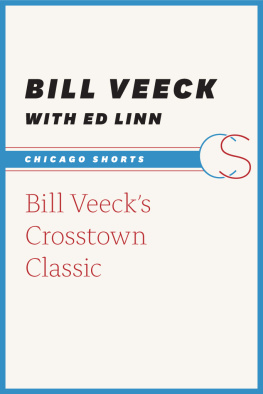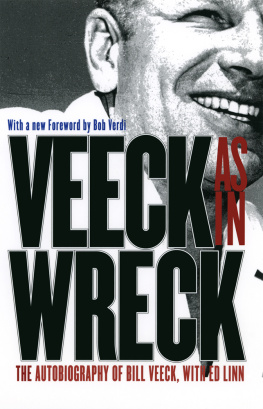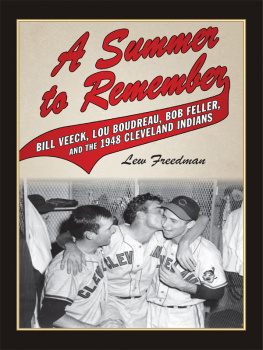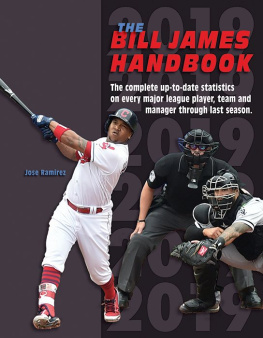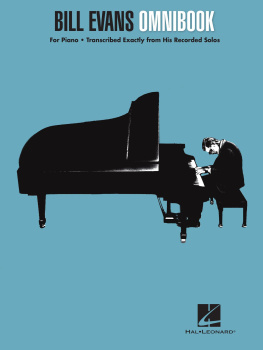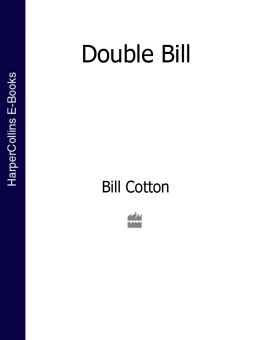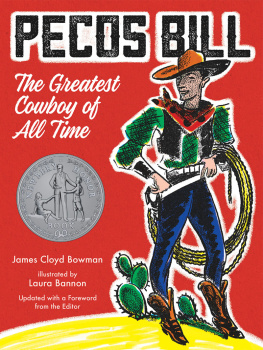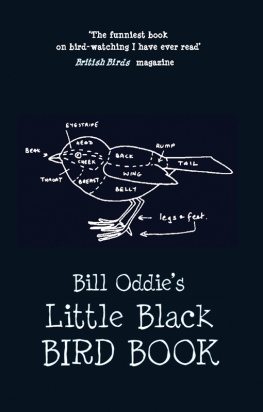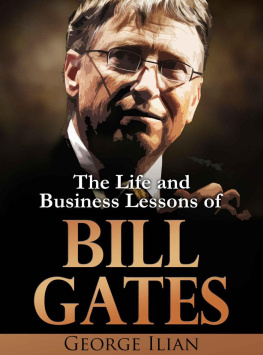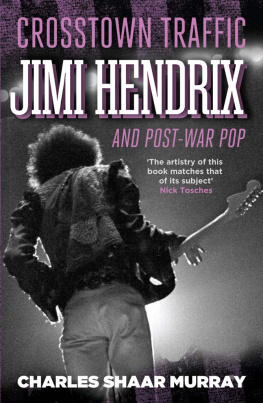Bill Veeck - Bill Veecks Crosstown Classic
Here you can read online Bill Veeck - Bill Veecks Crosstown Classic full text of the book (entire story) in english for free. Download pdf and epub, get meaning, cover and reviews about this ebook. year: 2012, publisher: The University of Chicago Press, genre: Detective and thriller. Description of the work, (preface) as well as reviews are available. Best literature library LitArk.com created for fans of good reading and offers a wide selection of genres:
Romance novel
Science fiction
Adventure
Detective
Science
History
Home and family
Prose
Art
Politics
Computer
Non-fiction
Religion
Business
Children
Humor
Choose a favorite category and find really read worthwhile books. Enjoy immersion in the world of imagination, feel the emotions of the characters or learn something new for yourself, make an fascinating discovery.
- Book:Bill Veecks Crosstown Classic
- Author:
- Publisher:The University of Chicago Press
- Genre:
- Year:2012
- Rating:5 / 5
- Favourites:Add to favourites
- Your mark:
- 100
- 1
- 2
- 3
- 4
- 5
Bill Veecks Crosstown Classic: summary, description and annotation
We offer to read an annotation, description, summary or preface (depends on what the author of the book "Bill Veecks Crosstown Classic" wrote himself). If you haven't found the necessary information about the book — write in the comments, we will try to find it.
Bill Veecks Crosstown Classic — read online for free the complete book (whole text) full work
Below is the text of the book, divided by pages. System saving the place of the last page read, allows you to conveniently read the book "Bill Veecks Crosstown Classic" online for free, without having to search again every time where you left off. Put a bookmark, and you can go to the page where you finished reading at any time.
Font size:
Interval:
Bookmark:
Bill Veecks Crosstown Classic
Bill Veeck and Ed Linn
Chicago Shorts
Bill Veecks Crosstown Classic comes from Veeck As In Wreck by Bill Veeck, with Ed Linn, 1962 by Mary Frances Veeck and Edward Linn
All rights reserved.
Chicago Shorts edition, 2013
ISBN: 978-0-226-04954-0
The Battle of Wrigley Field
From a purely financial standpoint my fathers death, coming as it did in the midst of the Depression, could not have occurred at a worse time. We had lived well. Now his investments, like everybody elses, had gone sour. I returned to Kenyon to finish out the football season, then went to the Cubs office and asked for a job. William Wrigley had died two years earlier. Phil Wrigley, his son, hired me as office boy at $18 a week.
That was all right. In the eight years I remained with the Cubs I received a sound and solid education in every phase of a baseball clubs table of organization. The same week I went to work for the Cubs, I began to work the switchboard for the Chicago Bears who, of course, played their football games at Wrigley Field. During the winter, I worked on the ground crew. The next winter, Mr. Wrigley got me a job at the Cubs advertising agency and he soon had me putting out a magazineand a pretty good oneto be sent to Cub fans.
I ran the commissary and I worked with the ushers. I worked the ticket windows and the ticket office. I ran the tryout school for high school players. I was in charge of park maintenance at the time Wrigley Field was being rebuilt and, at the end, I was the club treasurer and assistant secretary. Turn my wallet upside down and union cards will come tumbling out.
To everything, there is a craft. Take tickets. George Doyle, the head of our ticket department, not only taught me the tricks of the trade, he got me jobs in arenas and theatres all over town. I like to think that I can still count tickets fast enough to get a job anywhere in the country. A professional, working under pressure, picks up a whole block of tickets and riffles them alongside his ear, like a gambler counting a deck of cards. After a great deal of experience, you know through a combination of the sound and the feel exactly where to stop. And you have to be accurate; close doesnt count. When Doyle requested that the front office send me down to check the ticket windows during the 1935 World Series, I felt highly honored; each ticket, representing three home games, was worth $39.60.
Concessions are a whole little world in themselves, a world that has continued to fascinate me. You would be amazed how much sheer psychology is involved in selling a hot dog and beer. In designing the new concession stands at Wrigley Field, I wanted to install fluorescent lighting. I was told that fluorescent lighting could not be used outdoors because, as everyone knew, the lights wouldnt work in the cold. Well, baseball isnt exactly a winter sport. I told them to put in the fluorescents anyway and wed see what happened. What happened was that the lights worked fine (they also worked fine during the football season and would presumably work splendidly in any well-appointed igloo).
What also happened was that our business immediately fell off drastically. I had made the mistakein the luck of the drawof choosing a hard blue-white fluorescent, a lighting particularly cruel to women. Women seem to be born with some tribal instinct about these things; they would not come to the stands no matter how hungry they were. We changed to a soft rose-white, which is flattering to women, and quickly picked up all the old business and more besides.
At the same time I learned something so elementary that it is generally ignored in baseball. Female customers are not the same as male ones.
By working in the concession stands myself, I had come to understand the importance of space. In a baseball park, people run up to the concessions between innings or stop off briefly on their way out. I found that when I was able to get from the red hots to the beer and coffee without having to move. I would sell both the red hot and a drink. If I had to take but one step, the beverage sales would begin to drop. I was even able to reduce it to a precise formula. One extra step costs you 10 percent of your gross. I therefore designed the concession stands myself and have been designing my own ever since. An architect will draw you a beautiful stand. So beautiful and spacious that youll go broke.
I was in a position to be designing stands and supervising construction only because of Boots Weber, the man who had replaced my father. My father left me a far more valuable and lasting legacy than money. He left me a good name. All my life I have run across old friends of his eager to show their affection for him by helping his son. Boots had been running Wrigleys Los Angeles franchise, a post to which my father had reappointed him, and as a way of showing his affection and admiration, Boots more or less adopted me.
It was Boots who sent me to night school to study the subjects that would be most valuable around a ball park. I went to Northwestern to study accounting and business lawwhich have been invaluableand to Lewis Institute for designing and blueprint reading.
With a couple of hours to kill every night before going to school, Id stay around the office with Boots and try to be helpful. Before long, I was his assistant and we were running the club together.
Difficult as it may be to say how much one man can owe another, I owe more to Boots Weber than to anyone else. Years later in Cleveland, I found a bright, clean-cut young boy named Stanley Mcllvaine working behind the press-room bar. I sent him to night school to take accounting and business law, and moved him into the office to work with us during the day. When he finished night school, I sent him to Zanesville, Ohio, to run our Class-D club. Stanley is still in baseball. Last year, he was general manager at Dallas. It was my way of thanking Boots, in the way I thought hed like to be thanked.
I stayed on with the Cubs, after the first few years, only because of Boots. Life with Phil Wrigley was always a battle between the baseball men and the gum men. Boots and I had to stand back-to-back to protect each other from sudden attack.
It is hard to understand how a father and son can be as completely different as William and Phil Wrigley. The father, who practically invented chewing gum, was the last of the super salesmen, a man who made his name synonymous with his product. He was a well-upholstered, jovial man who liked people and knew what made them tick.
The son is one of those men who is difficult to describe in a quick few words. I always called him Mr. Wrigley when I worked for him, I still call him Mr. Wrigley when I see him, and half the time I even think of him as Mr. Wrigley.
As a young man he was quiet and introspective and always perfectly happy to be overshadowed by a dynamic father whom he worshiped. His father left the club to him personally rather than to the estate, the only direct bequest in his will, and so Phil Wrigley assumed the burden out of his sense of loyalty and duty. If he has any particular feeling for baseball, any real liking for it, he has disguised it magnificently.
The one point on which we clashed, perennially, was promotion. I wanted it. He didnt. He was the boss. He won every argument. Mr. Wrigley, as a shy man, isnt interested in the press. Its more than that, though; hes a little afraid of writers. He sometimes leaves the impression he is afraid that if he opens himself up to them theyll compare him unfavorably with his father.
He isnt really a lesser man, hes just different. Lets have no misconceptions on this point, Mr. Phil Wrigley is a brilliant man. He has taken his fathers company and built it into an international colossus, and dont give me any of that nonsense about it being easy for a son to step into an established enterprise. I have seen too many rich mens sons run their fathers businesses into the ground. Mr. Wrigley would have been successful at anything he put his hand to. And that, in fact, is where he is happiest, putting his hands to things. He is a mechanical genius. His greatest relaxation is to strip an old automobile apart and put it back together.
Next pageFont size:
Interval:
Bookmark:
Similar books «Bill Veecks Crosstown Classic»
Look at similar books to Bill Veecks Crosstown Classic. We have selected literature similar in name and meaning in the hope of providing readers with more options to find new, interesting, not yet read works.
Discussion, reviews of the book Bill Veecks Crosstown Classic and just readers' own opinions. Leave your comments, write what you think about the work, its meaning or the main characters. Specify what exactly you liked and what you didn't like, and why you think so.

